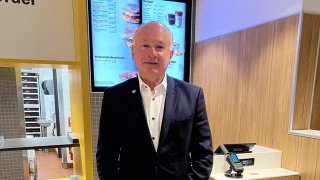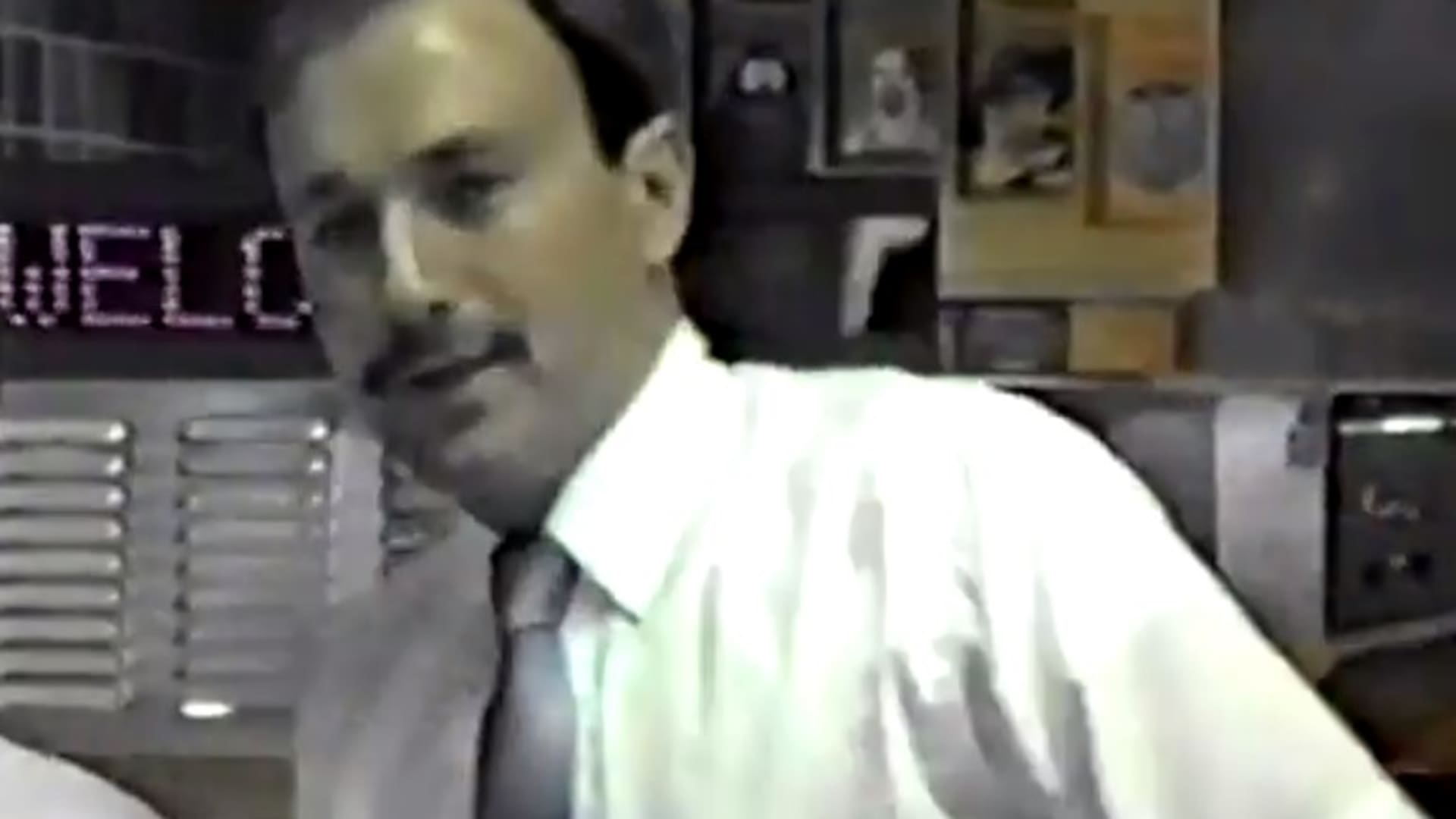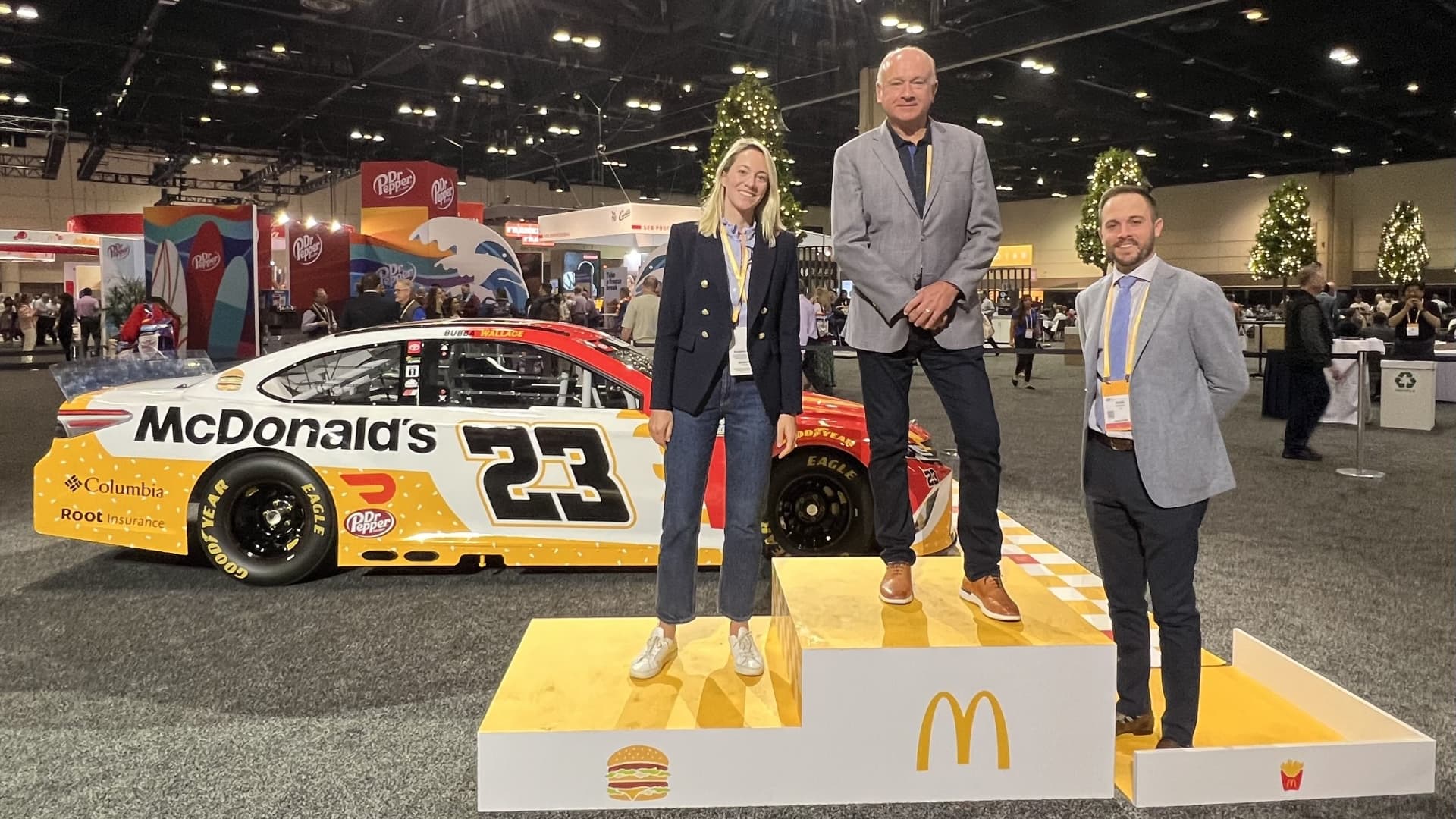
In the 1970s, the coolest job you could have was flipping burgers at McDonald's.
At least according to Paul Hendel. He started working at the newly opened McDonald's in Merrick, New York, on the south shore of Long Island in 1973 when he was just 16 years old, excited to snack on unlimited french fries and hang out with his friends between shifts. The gig paid $1.85 an hour.
"Believe it or not, you needed to have an in to get a job at McDonald's back then, so my brother, who was working in the kitchen, recommended me for the job," Hendel, 66, tells CNBC Make It. "Everybody wanted to work there."
Hendel didn't see a future at his high school job past graduation. He was accepted to C.W. Post University (now Long Island University), and planned to graduate with a bachelor's degree in business with a concentration in marketing and join his dad, Hank, who worked for a brokerage firm on Wall Street.
Get Tri-state area news and weather forecasts to your inbox. Sign up for NBC New York newsletters.
Fifty years later, Hendel owns and operates 31 McDonald's locations across Long Island, Brooklyn, Queens and Manhattan, including the flagship restaurant in Times Square.
"I never thought it would be my forever job," says Hendel. "But I also can't imagine working anywhere else."
The conversation that changed the trajectory of his career
Money Report
In 1975, Hendel was about to quit his job at the Merrick McDonald's ahead of his first semester of college when his then-boss offered him a promotion: McDonald's was opening a new location 30 minutes away in Glen Cove and desperately needed an assistant manager.
Hendel accepted the job, figuring he could use the money to help pay for tuition and books.
"There were a couple of parties that I missed, and I wasn't happy about that, but it really paid off when I graduated, because I had zero debt and was really ahead of the pack in terms of work experience and networking with that job," says Hendel. "Plus, being trusted to open a new restaurant when you're an 18-year-old kid is pretty exciting."
Hendel quickly proved himself to be a valuable asset to the team, volunteering for late-night shifts and improving the onboarding process for new crew members. Within three years, he was promoted to general manager.
In 1980, once he graduated college, Hendel found himself again at a crossroads: Should he join his dad on Wall Street, where he could potentially make more money, or keep working at McDonald's, in a job he was good at and enjoyed?
"I was seriously considering putting my two-week notice in and the owner/operator of the restaurant, Peter Hunt, must have read my mind because he goes, 'Paul, I don't want you to leave. I'm going to make you a supervisor of five McDonald's locations in Nassau County, and it'll come with a raise and a company car,'" Hendel recalls.
After talking with friends and reading some job listings, Hendel realized the offer came with a much higher salary than he would have made his first year working at a firm on Wall Street (Hendel declined to share his previous and current salary with CNBC Make It).

Still, he felt conflicted. Hendel asked his dad for advice before accepting the offer at McDonald's. That conversation, he says, "changed the trajectory of my career."
"We were out to dinner, and I mentioned the offer from Hunt, and my dad's first question — I'll never forget it — was, 'Do you like what you do?'" says Hendel. "And I said, 'Yeah, I really love it.' And he goes, 'Do you think you're good at it?' And I said, 'Well I just got promoted!'"
He continues: "Then he said, 'Paul, if that's what you like to do, and you're good at it, stick with it because I'm not crazy about my job or commuting into Manhattan every day.' I realized, then, that work isn't just about getting a paycheck every week. I'm so glad he gave me the advice he did, because I still love what I do."
'I don't want to have the word 'retired' fully next to my name'
Another aspect of working at McDonald's that excited Hendel in his 20s was the opportunity to become an owner/operator, overseeing the day-to-day operations of a restaurant and managing his own staff. It's also a lucrative gig: ZipRecruiter estimates that owner/operators at McDonald's earn up to $400,000 per year.
"The opportunities that McDonald's presents really are limitless," says Hendel. "I've worked with people who started as crew members, then promoted to owner/operators in a few years and became millionaires."
In 1990, Hendel became the owner/operator of his first McDonald's restaurant in Brooklyn. "From there, I've gotten another restaurant almost every year."
Hendel says working in Brooklyn taught him the importance of time management, compassion and handling issues "quickly and calmly" in a fast-paced environment. "You have to be really good with people when you're managing a staff and serving over 1,000 customers a day at each restaurant," he adds.

Hendel still works five days a week and spends most of his time in the restaurants he owns, checking in on employees and any ongoing construction or renovations at the properties.
The skills Hendel relies on to do his job haven't changed in decades, Hendel jokes, and neither has his McDonald's order. "My favorite is still a quarter pounder with cheese," he says.
Hendel hasn't given retirement much thought. "Is it really working as long as you're doing something you love?" he says.
Eventually, Hendel expects that he will gradually phase out of his role, passing on more responsibilities to his son, Mark, and daughter, Lauren, who became owner/operators of McDonald's franchises in 2019 and 2022, respectively.
"I'd like to have the flexibility to wind down at work, so I have more time for golf, going out on my boat and spending time with my family," says Hendel. "But I don't want to have the word 'retired' fully next to my name."
DON'T MISS: Want to be smarter and more successful with your money, work & life? Sign up for our new newsletter!
Get CNBC's free Warren Buffett Guide to Investing, which distills the billionaire's No. 1 best piece of advice for regular investors, do's and don'ts, and three key investing principles into a clear and simple guidebook.
Check out:






